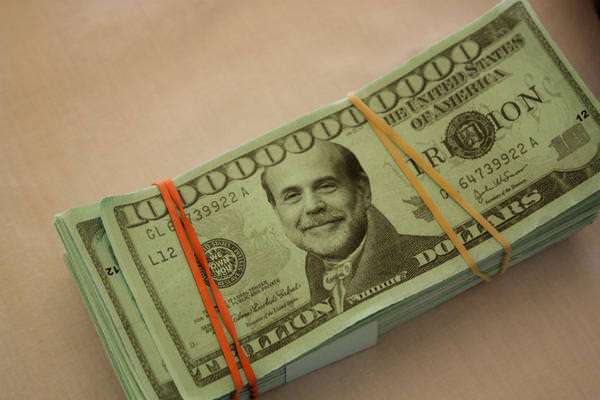State of the Union Address Conveniently Ignores Monetary Policy
Last night's State of the Union address made no mention of monetary policy. It did not include the following words even once: monetary, Federal Reserve, inflation, inflation rates or Treasury.
Come to think of it, Obama has never mentioned those terms in reference to monetary policy during any of his State of the Union addresses.

Obama devoted a large portion of his speech to the economy, and rightly so. He referred to consumer confidence, budgets, and the burden of higher priced goods on households. But ignoring the essentials of monetary policy shouldn't sit well with anyone.
Leaving out monetary policy from his address gives Americans an incomplete picture of our road to recovery.
Perhaps Ben Bernanke, Timothy Geithner, or Lawrence Summers—each of whom were appointed to various positions in past administrations and have all been involved in the financial crisis—deterred him from learning about it.
But Obama has economic advisors, the Federal Reserve's Board of Governors and other employees of the Treasury Department at his disposal, so intimidation is no defense.
Not confronting monetary policy allows Obama to ignore the monopoly that government has on the creation of money. It doesn't force him to remember that our money is not backed by anything but the faith we have in it. By ignoring monetary policy, Obama is showing that he doesn't grasp that faith is not a sound backing for a nation's currency. But Obama used the word "faith" three times last night. The very first time is by far the most interesting:
Let's agree—let's agree, right here, right now, to keep the people's government open and pay our bills on time and always uphold the full faith and credit of the United States of America.
So we will restore faith and credit when we "pay our bills on time" with money that isn't backed by anything? If that's the case, it seems like we're just handing out watermarked IOUs.
Why can't we use a currency that not only fulfills the three essential criteria of money but also lives up to the standard of having the real full faith of the American public behind it? Allowing currencies to compete gives market participants a choice in which currency they have "full faith" in because it serves its functions and accounts for individual preferences, asserting its soundness.


Show Comments (78)